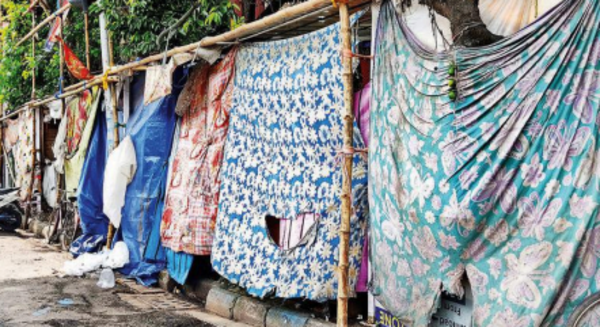[ad_1]
The KMC advertisement department has floated an e-tender for installation of such view-cutters to cover the street-facing rear ends of stalls between Rashbehari (crossing) and Bijon Setu on either side of Rashbehari Avenue as well as on either side along Gariahat Road. Such view-cutters will later be installed between Rashbehari crossing and Triangular Park. In the first phase, KMC has decided to install such view-cutters behind 931 stalls in the Gariahat hawking zone.

“We are expecting a response from bidders and will take up the project at the earliest to rid Gariahat of the eyesore. The successful bidder will have to install the view-cutters in the form of rectangular metal panels at the back of the hawkers’ stalls within two months of the order being issued. If the bidder over-shoots the time, the order will be cancelled. The period of allotment will be for three years,” said a KMC official.
The civic official said the private agencies that will be allotted the work will install the metal framed view-cutters at their own costs and maintain them for three years. In lieu, they will be allowed to mop up revenue by displaying advertisements.
According to Debasish Kumar, the mayor-in-council member overseeing the KMC advertisement department, the civic body’s inspectors will visit the spots after installation of the metal panels and report to the civic brass on the quality of such panels. “If we find any deviation from the policy, we may need to cancel the agreement with the private agency that will be allotted the work,” said Ghosh.
The general secretary of Gariahat-Ballygunge hawkers union, Debraj Ghosh, welcomed the civic move and vowed to extend all possible cooperation to the civic body’s advertisement department. “It is a long-pending scheme that will give the Gariahat hawking zone an aesthetic look. I have already asked the hawkers to shun plastic and torn clothes that look shabby,” said Ghosh.
A KMC advertisement department official said the hawkers in Gariahat and other prime hawking zones were unofficially allowed to use plastic covers for the rest of the rainy season for protection of their goods.
[ad_2]
Source link





Join The Discussion